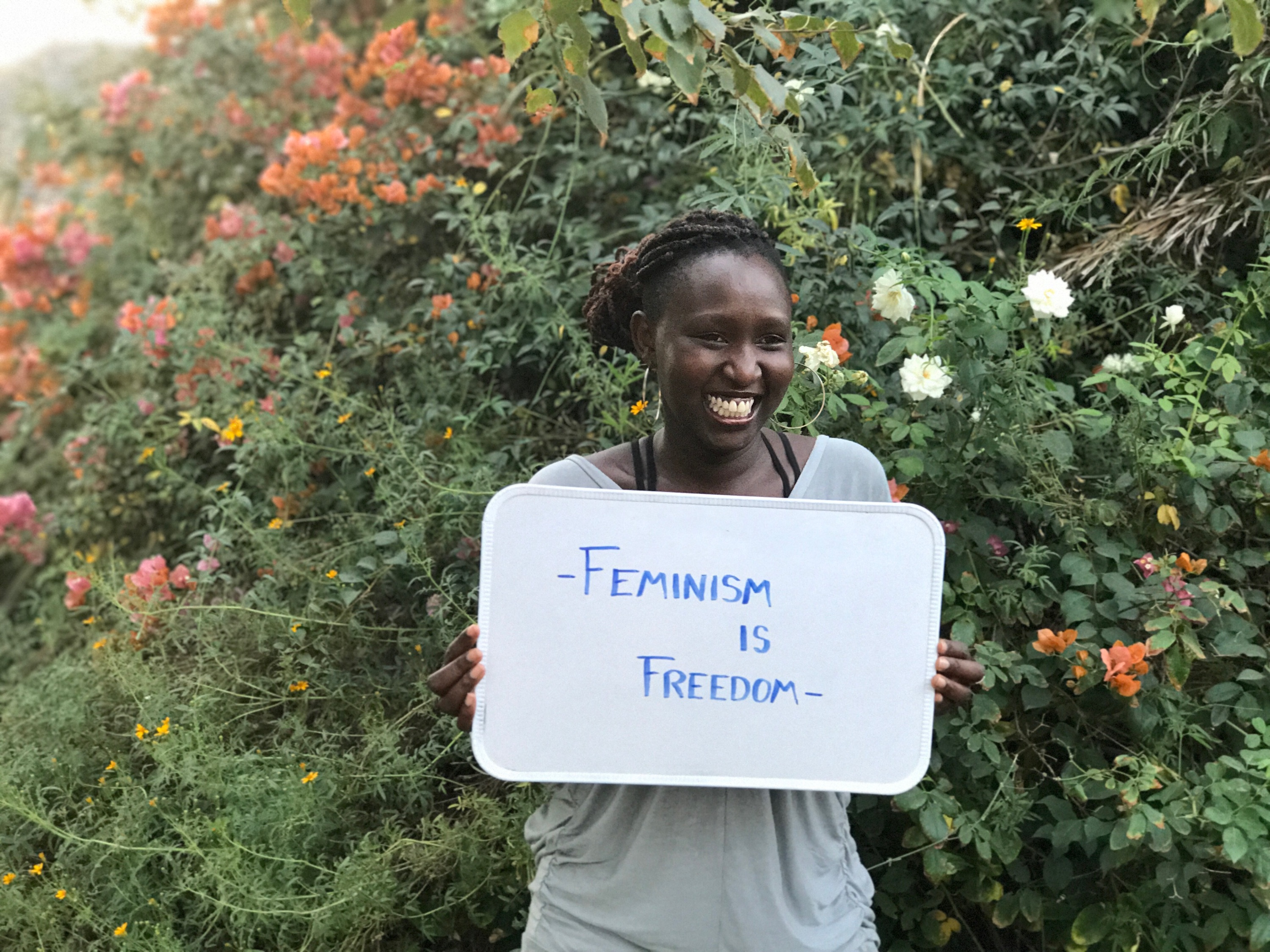Featured UCLA Feminist: Cera Muchiri

Photo by Ayelet Berman-Cohen
Cera Muchiri is a fourth-year UCLA student studying international development and minoring in entrepreneurship. Feminism for her is a place where women’s voices are equally as respected as men’s, and where women have the freedom to walk around without worrying about sexual violence. As a Black feminist, Cera recognizes the importance of intersectionality and the different challenges women of varied identities face.
Cera’s feminist awakening came at a young age. During her childhood in rural Kenya, she and her older brother used to go to school together during the day. One day they came inside after a long day of school and her grandmother asked Cera to make her brother something to eat. Cera had cooked for him before, and her older sisters and other women in her life had been cooking for him for years, but all the sudden it hit her.
Cera looked at her grandmother and told her, “We leave at the same time, come back at the same time – he should prepare something for himself.” Her grandmother was surprised, but Cera stood by her word, and decided not to cook unless her brother cooked.
From that moment on, Cera began to associate cooking with being a woman. Comments from her grandmother and women in her community that she had previously found humorous, like how she wouldn’t find a good husband if she didn’t know how to cook, began to weigh on her. She felt she was being groomed to become a good wife, and that cooking was the tool being sharpened. Though Cera cooks for herself and enjoys how food brings communities together, she is still triggered by assumptions that women are by default in the domestic role responsible for the realm of the kitchen.
While this was one moment that sparked her feminist practice, Cera doesn’t want it to be framed as a victim narrative. Instead, it served as a spark for Cera to begin to understand the systems and assumptions in place in her community and broader society.
As Cera grew older and moved to the United States, her understanding of feminism developed and impacted her life in many ways. From her personal life and relationship choices to her studies and career, Cera’s feminist perspective has changed the way she approaches choices in her life. One place in particular where she has incorporated feminism is her education. As one of few women, let alone Black women, in her business classes, she feels compelled to share her voice. Though she would rather speak up out of her own interest than the pressure to represent those not at the table, her feminism has helped her understand the need for diversity and she continues to contribute for all the women who are not in those spaces.
Another one of Cera’ feminist practices is to think critically about the readings she is given in class and analyze them from a feminist point of view. Additionally, she seeks out research done by women, both in her study of development and of entrepreneurship, in order to gain new perspectives.
Cera is optimistic about the future of feminism. She has seen in her own life that people are beginning to recognize the need for men’s participation in the fight for equality, and she feels there needs to be a focus on how we raise our children.
“For a long time, people thought that if women changed and asked for more rights, we would have equal rights. The work, however, needs to shift so that men are actively participating” she remarked. “Just as we speak about victims of sexual assault without addressing the aggressors, we always talk about the feminist fight as a woman’s fight, without addressing that men are contributing to and benefitting from the current systems in place.”
This discourse of men as passive actors and women as outspoken victims has, in Cera’s view, failed men. Men are not asking why am I being paid more? How am I making other people feel unsafe? Or more importantly, how can I change my behavior? Instead, women are asking how to protect themselves as men are written out of the conversation entirely. The conversation focuses on the victims of harassment, or the fact that women make less cents on the dollar, for example, rather than the perpetrators of the violence or those benefitting from the wage gap.
Thus, Cera believes, the future of feminism lies in the way we raise our children. By engaging in real conversations with children, especially boys, about the experiences women have and the role men play in perpetuating inequality, the next generation of men will hopefully feel the need to engage and take responsibility for their actions.




